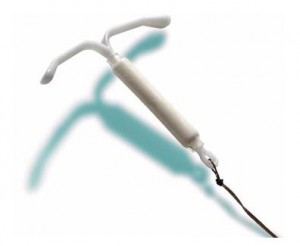FREE MIRENA CASE EVALUATIONS: CALL 1-800-632-1404
Our team of attorneys are now investigating claims and prepared to file Mirena lawsuits involving the intrauterine contraceptive device Mirena®. Manufactured by Bayer Healthcare Pharmaceuticals, Inc., Mirena is an IUD device [intrauterine device] that must be inserted by a trained health care provider and is intended to provide contraceptive protection for up to five years. Some women have experienced serious adverse side-effects and potentially life-threatening complications following the implantation of the Mirena device, including perforation of or imbedment in the uterus.
Alleged Side Effects from Use of Mirena
Mirena is alleged to have many side effects. Generally a physician inserts the Mirena device by stretching the loop into a linear form and pushing it through a plastic tube into the uterus. This procedure is performed through the cervical opening. All Mirena devices have tiny nylon threads attached to them which hang down through the cervical opening into the vagina. The wearer or a clinician is thus able to determine if they are properly in place by checking for the presence of these threads. If a woman wishes to become pregnant, the Mirena IUD must be removed by a physician. After birth it may be repositioned in the uterus until another pregnancy is desired. Although Mirena works as a contraceptive, it is not 100% fool proof. It can fail. The failure rate is alleged by the company manufacturer to be low, but there are cases of women who have gotten pregnant or allegedly injured despite having the Mirena device implanted.
Expulsion of Mirena
About 10 percent of the women using the Mirena device expel them during the first year of use, usually during the early months of use and frequently during menstruation. Because the Mirena device can be expelled without the user’s notice, frequent checks to make sure it is in position are important.
Some women experience side effects from the use of the Mirena device. The most common of these effects are bleeding, cervical pain, and uterine cramps. Another possible danger of Mirena device is perforation of the uterus. Perforation is rare but it can be fatal.
Infertility
The use of the Mirena device can also result in infertility. Blocked or damaged fallopian tubes is one of the causes of infertility. A blocked or damaged fallopian tube may stop sperm reaching an egg or, if the sperm does manage to get through to the egg, the resulting embryo may not be able to reach the uterus. One or both tubes may be damaged and the damage may occur anywhere along the tube from the fimbrial end—where the eggs enter—to the isthmus—the end closest to the uterus. Tubes may become blocked in a range of circumstances: because of salpingitis (an infection or inflammation), or because of adhesions (very thin layers of scar tissue that develop and cause an obstruction), or because of the development of a hydrosalpinx (afluid-filledblockage). The insertion of the Mirena device can cause inflammation or infection of the tube.
FOR A FREE CASE EVALUATION:
CALL TOLL FREE: (800) 632-1404
EMAIL: clicking here.
FILL OUT THIS FORM FOR FREE HELP:
NOTE: Our team of attorneys will review potential cases for all fifty states, including Alabama Alaska Arizona Arkansas California Colorado Connecticut Delaware Florida Georgia Hawaii Idaho Illinois Indiana Iowa Kansas Kentucky Louisiana Maine Maryland Massachusetts Michigan Minnesota Mississippi Missouri Montana Nebraska Nevada New Hampshire New Jersey New Mexico New York North Carolina North Dakota Ohio Oklahoma Oregon Pennsylvania Rhode Island South Carolina South Dakota Tennessee Texas Utah Vermont Virginia Washington West Virginia Wisconsin and Wyoming.
